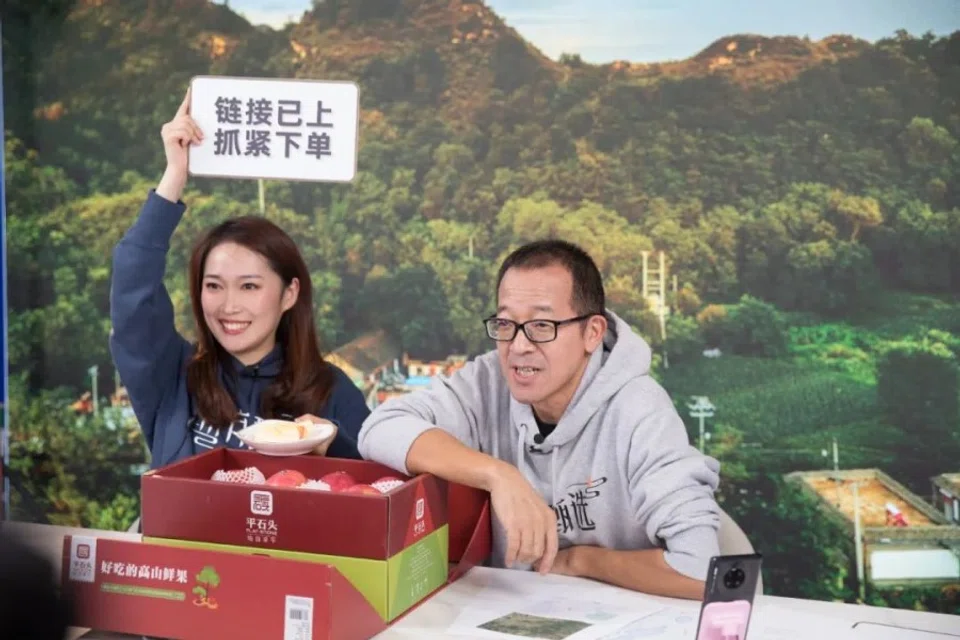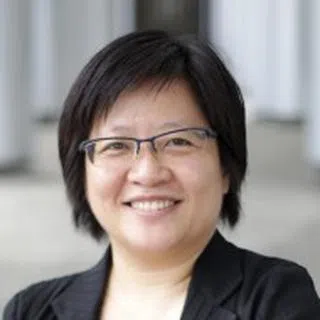China's 'godfather of overseas study' now selling farm produce, regrets listing
For New Oriental Education and Technology Group Inc. founder Michael Yu Minhong, the year 2021 has been a rollercoaster ride of losses amid a crackdown on the off-campus tutoring sector. The company seems to be bouncing back with livestreaming farm sales, but is this all just bravado and a further move away from the company's origins as an educatonal provider assisting those preparing to study overseas? Yu himself has lamented in the past that the minute the company listed on the NYSE, it went off course. In the aftermath of the chaos, will it be able to recentre itself, or will it continue being swept by the tide?

New Oriental Education and Technology Group Inc. founder Michael Yu Minhong, nicknamed "godfather of overseas study", posted his heartfelt reflections for 2021 on Weibo on 8 January.
The 60-year-old entrepreneur said of the tumultuous year: "New Oriental has managed to survive and has preserved a little strength for the future..."
He noted that the company's market value and revenue had fallen by 90% and 80% respectively. The company had also dismissed 60,000 workers and doled out numerous tuition fee refunds. The cost of severance payments, tuition refunds and terminated leases for teaching sites totalled nearly 20 billion RMB (US$ 3.1 billion).
Reinventing the business
He added that New Oriental would shift towards offering services for non-academic subjects, while its Hong Kong-listed subsidiary would become an e-commerce platform selling farm products. In fact, the livestream e-commerce platform was already launched on 28 December 2021 by Yu himself, but as he sold farm produce as if he was teaching a class, sales were mediocre. Yu did not appear in a livestream again after that, and sales plummeted even more, amounting to only hundreds of thousands of RMB each day.
Yu's experience is emblematic of the tumultuous journeys of many other entrepreneurs in these times of change, but also unique in itself.

In 2021, with the aim of containing the disorderly expansion of capital, China's higher-ups came down hard on the internet industry and almost annihilated the once glorious off-campus tutoring sector worth over 700 billion RMB. Caught in the maelstrom, the off-campus tutoring sector took a big hit, and Yu's net worth shrunk from 26 billion RMB to 7.5 billion RMB, while over 200 billion RMB of New Oriental's market value was wiped out.
But someone had it even worse than Yu - Larry Chen Xiangdong, former executive president of New Oriental and founder of Gaotu Techedu Inc. Specialising in online education for primary and secondary school, Gaotu's shares have lost 98% of their value in 2021, with Chen's net worth tumbling from 80 billion RMB to only about 1 billion RMB. Wealth in the capital market is like magic - it's there one minute and goes 'poof' the next. Just the previous year, Chen's net worth increased a whopping 662% within a year.
Today, many people born in the 1980s and 1990s who studied English with New Oriental remain grateful to it. They say that New Oriental quietly opened a door for hundreds of thousands of graduates, and illuminated young people's dreams of going overseas.

Yu's plight is not as bad as some of his contemporaries because the revenue ratio of New Oriental's K12 (primary to high school) training courses is lower than that of its competitors like Gaotu and TAL Education Group. Hence, New Oriental was not that badly hit by official policies.
Actually, when New Oriental was first starting out, it did not offer tuition services to primary and secondary school students. Instead, it ran English courses and provided training services for students planning to go abroad. In the 1990s when studying abroad was becoming insanely popular among Chinese intellectuals, undergraduate and graduate students from various faculties rushed to take the TOEFL test to gain admission into foreign universities and obtain scholarships. There were also people who diligently studied English to work in foreign enterprises. Back then, practically all college students knew about Yu's New Oriental. In 1995, New Oriental had over 10,000 students, and Yu used to carry gunny sacks to the office each month to pay the teachers' salaries. Yu himself became a multimillionaire.
Today, many people born in the 1980s and 1990s who studied English with New Oriental remain grateful to it. They say that New Oriental quietly opened a door for hundreds of thousands of graduates, and illuminated young people's dreams of going overseas. Yu, who was previously called a "turtle" (土鳖, tubie, meaning a bumpkin or one who has never studied overseas), has nurtured a group of returning talents (海归, haigui), while young teachers are earning good incomes and having a decent lifestyle thanks to New Oriental.
All downhill after NYSE listing
In 2006, New Oriental became the first Chinese education company to be listed on the NYSE, establishing an official link with capital. Subsequently, Yu said more than once he regretted the listing, as he felt New Oriental set a bad example in leading foreign investors and tutoring centres in China to think that education is a money making enterprise that can be listed.

However, New Oriental cannot go against the capital market. In its second year in the US market, in order to meet earnings and profit growth requirements for listed companies, New Oriental went into the K12 sector. Fast forward seven or eight years, and New Oriental was seriously preparing to go into online education, even as a host of rivals such as Xueersi (the previous iteration of TAL Education Group) was pouring money into the sector. Then, as the online education sector got into a free-for-all in burning through money to seize the market, last year the Chinese authorities ordered off-campus tutoring for primary and secondary schools to switch to non-profit organisations, ending the chaos.
"What I do at New Oriental is a state of mind, a culture, a quality of teaching. In a sense, all this is contradictory. When your scale grows quickly, the quality of teaching might be weakened." - Yu Minhong
Over the past couple of years, one term has been popular in China: involution (内卷, neijuan), meaning futile effort amid intense competition in the workplace and in school, where one expends a lot of energy but remains stagnant or is unable to move into a higher level. The capitalist market also drives involution - about one year ago, the online education industry in China was racing to "burn money" on marketing to spur demand for tutoring, and even committed marketing frauds "selling anxiety" to parents. The authorities clamped down on this madness, but did not provide a way out for tutoring companies and retrenched teachers, leaving them to fend for themselves. Were parents' anxieties resolved? There is no answer to that.

Before 2008, China Entrepreneur Magazine ran a long read exclusive titled "Yu Minhong's Regrets on Getting Listed" (俞敏洪上市之悔), which quoted Yu telling someone: "Getting listed is terrible... Do you have to? Why do you want to work so hard? You don't lack money." He added: "What I do at New Oriental is a state of mind, a culture, a quality of teaching. In a sense, all this is contradictory. When your scale grows quickly, the quality of teaching might be weakened."
After all these years, has Yu resolved his struggle? Perhaps he no longer needs to. And now, most people are not optimistic about his switch to selling farm products. Some are questioning if he is just chasing the next trend, while a minority feel that he will go back to his roots and do something he feels for. It seems everyone hopes this is the case, but is it possible to go back to a time of not being swept up in the tide, with no unhealthy competition or involution?
Related: Why online education fails to thrive in China amid the pandemic | China to impose strict measures on tuition centres to allay anxiety over education | Investing in China: Why didn't anyone foresee the regulatory clampdown on the tutoring industry? | China's tutoring crackdown: It is not a random act by the Chinese government | China's tutoring industry finding new ways to survive after government crackdown | Parents and teachers brace themselves for China's new school year under the 'double reduction' policy





![[Photos] Fact versus fiction: The portrayal of WWII anti-Japanese martyrs in Taiwan](https://cassette.sphdigital.com.sg/image/thinkchina/3494f8bd481870f7c65b881fd21a3fd733f573f23232376e39c532a2c7593cbc)